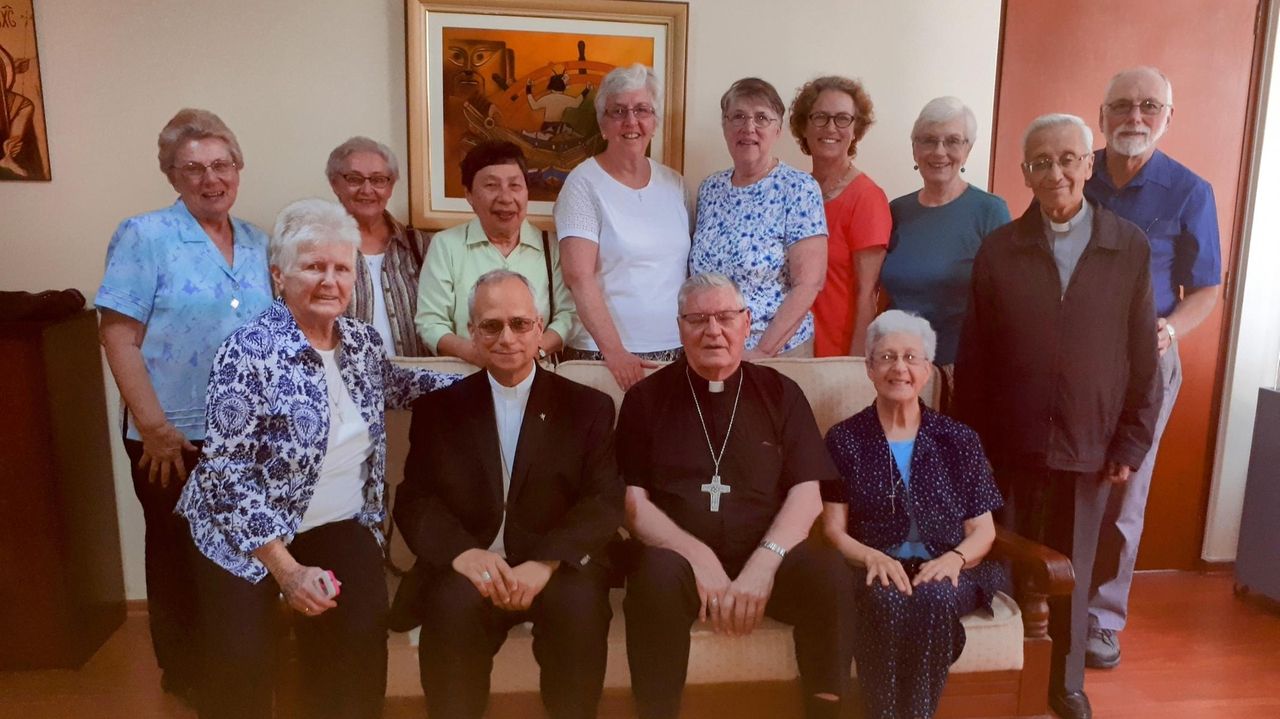I met Pope Leo XIV in the Diocese of Chiclayo in Peru, where I once worked and where he once was Archbishop Robert Prevost.
The meeting took place in October 2018, when the missioners who had worked there returned to the desert city for the 50th anniversary of the arrival of our mission team sponsored by the Canadian Diocese of Halifax, Nova Scotia.
From 1968 to 1993, the Diocese of Chiclayo incorporated a rotating group of missioners to take charge of the pastoral needs of the densely packed squatter settlement adjacent to the city. The people were poor, vibrant and full of faith, yet lacking Peruvian priests, sisters and committed lay Catholics who could nourish that faith.
Our goal as foreigners was to fill the gap until such time as local ministers rose up to take our place. We accompanied the people in their reality, learning as much as we ever taught. I served there from 1982 to 1990, unaware of the young Father Robert Prevost, who was also a missioner, working just four hours north.
When I returned in 2018, I had not been back to Chiclayo in three years, and the future pope had been named archbishop in the interim. It was soon clear why our Peruvian friends appreciated him so much.
A trim, gracious man with a quiet presence, he thanked us for our years of work for the church of Chiclayo and inquired about our present ministries with genuine interest.
Later that week, I joined him on a panel presentation on evangelization. Instead of the expected group of 40 or so, all 200 seats in the parish hall were filled, people stood in the back, leaned against the side wall, and spilled through the door. Archbishop Prevost reminded the audience that spreading the good news of God’s love and Jesus’ message was the work of all Christians.
That was also the year that an estimated 20,000 impoverished Venezuelans came in waves to the city, leaving their homeland due to an all-but-total collapse of the economy. Families slept in doorways and alleys and bus depots.
Archbishop Prevost played a major role in the city’s response to the crisis, evoking the biblical exhortation to welcome the stranger. He himself led the effort to make welcome a reality. He called on volunteers to assess the newcomers’ needs, plunged into a program of food distribution, and scoured the diocese to find unused spaces. Then he organized an interfaith group and local authorities to furbish bare-bones shelters.
I worked with immigrants on the South Fork of Long Island from 2010 to 2023. Hampton Bays and Chiclayo are very different places but the needs of immigrants are the same. My colleagues and I welcomed waves of immigrants from Central and South America with kindness, a helping hand, and a listening ear.
I feel certain that Pope Leo’s message to us, his compatriots, will stress a change of heart that enables us to see immigrants as our sisters and brothers. Without wading into policy matters, he will condemn a discourse that treats immigrants as problems, or as prey to be hunted down.
As a pastor, beloved for being close to the people, he knows that immigrants of Chiclayo and immigrants on Long Island are, in the main, hardworking families who want to earn their keep and contribute to their new country.
THIS GUEST ESSAY reflects the views of Mary Beth Moore, a Sister of Charity from Nassau County who has worked with the immigrant community on the South Fork of Long Island since 2010.
